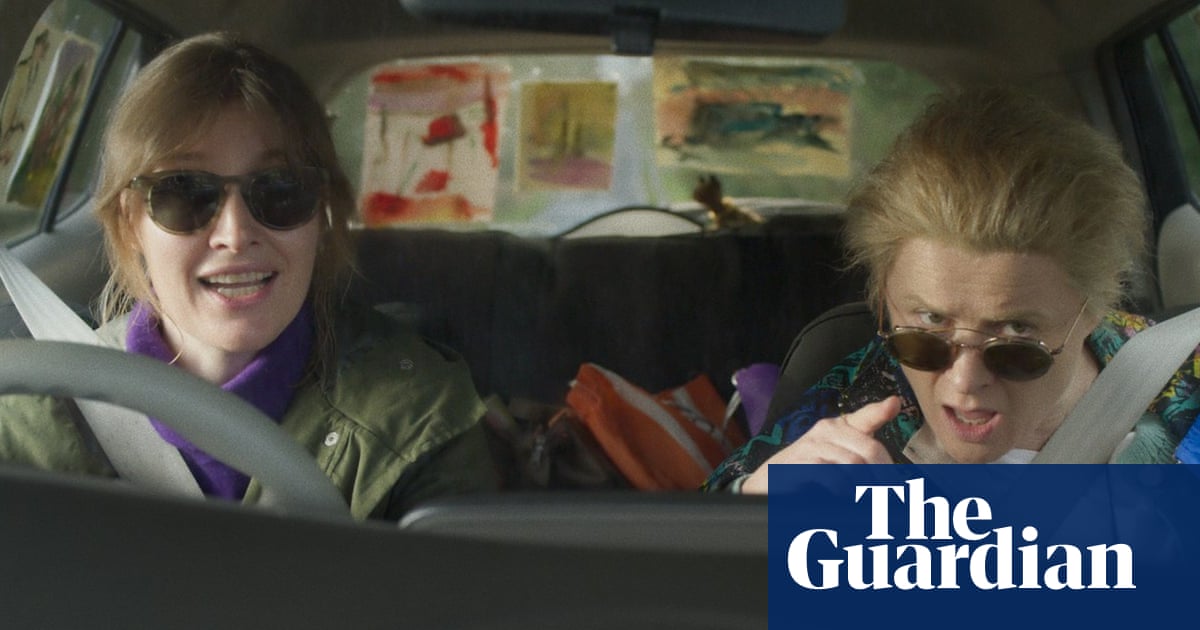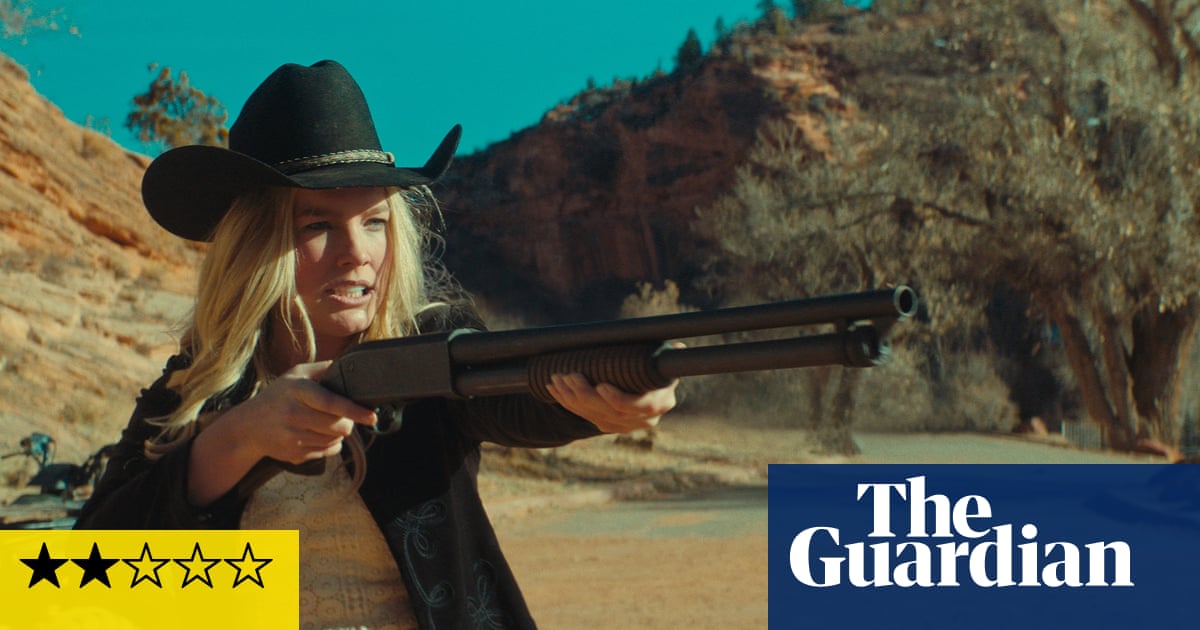
. Audrey Amiss was the talented daughter of Sunderland shopkeepers who made a splash in the press by winning a place at the Royal Academy’s schools in London. In her final term, she was hospitalised for the first of many mental breakdowns, after which she disappeared for 30 years into a job as a shorthand typist in the civil service. But unknown to anyone except those who tried to care for her, Amiss never gave up on her art. “I was once in the tradition of social realism, also called the kitchen sink school of painting,” she wrote. “But I am now avant garde and misunderstood.”
Film-maker Carol Morley had never heard of Amiss until she was awarded a screenwriting fellowship at the Wellcome Foundation medical charity. “Somebody said, ‘We’ve got the archive of a woman who saved the wrappers of everything she ate every day.’” The Audrey Amiss collection, to which these wrappers belonged, had yet to be catalogued. “It was almost like a myth,” says Morley. “I was given two hours in a room with it – and I was there all day. I had to find out more.” Among the treasures she unearthed was Amiss’s passport, in which she described her occupation as: “Typist, Artist, Pirate, King.”
Those four words gave Morley the title of the riotously quirky road movie she went on to make. In it, we meet Amiss tenderly helping a beetle back on to its feet, as a mouse scuttles through all the rubbish littering her squalid flat. This idea arose from a phonecall Morley had with the actor who plays Amiss, Monica Dolan, whose murderous turn as Rose West in ITV’s Appropriate Adult won her a Bafta. Morley recalls: “Monica said, ‘Wouldn’t it be nice to see Audrey doing something very tender early on, like maybe turning a beetle over. And I’m like, ‘Ah, that’s brilliant – because of Carl Jung who had a thing about the scarab beetle.’”
When the script arrived, Dolan was astonished. “I didn’t mean a beetle, I just meant something like a beetle,” she says. “You must have said it unconsciously,” Morley replies. “And it came with this amazing handler who could get it to do things,” adds Dolan. “Yes, and she had the mouse as well,” says Morley. “Whoever would have thought there was such a thing as a mouse and scarab beetle wrangler?” muses Dolan.
Amiss, who died in 2013 at the age of 79, would undoubtedly have enjoyed this exchange, which is happening in a sombre hotel room cluttered with camera equipment and makeup bags. Morley is handing out Typist Artist Pirate King badges like sweets, and is wearing an eye-popping jacket printed with a neon yellow car. It’s a tribute to the jalopy Amiss inveigles her longsuffering psychiatric nurse Sandra into, for an impromptu road trip from London to Sunderland. Sandra – or Sandra Panza, as Amiss dubs her – is played by Kelly Macdonald, who has joined us today from her home in Glasgow.
Typist Artist Pirate King is entirely dependent on the rapport between its two stars. Even when exploding in frustration, Macdonald’s Sandra is the faithful squire to Dolan’s quixotic Amiss, who spies friends and enemies at every junction, crashing a yoga class that she is convinced is being run by her old headmistress, and squirting ketchup over an astonished couple in a roadside cafe who once, she is certain, did her a grievous wrong. At first Sandra is in the driving seat, with Amiss in the back, sketching everything she sees, but gradually the power balance changes as it emerges that Sandra is herself a lost soul, in need of a forceful spirit like Amiss’s.
“With Sandra,” says the director, “I was interested in how much mental health nurses have to hide what they think. And I think Kelly just has these depths.” Their first conversation took place over video link during the pandemic, with Macdonald later having no recollection of it, even though it resulted in her being offered the job. “What can I say?” she says. “It was a strange time.”
The trio only finally met up in 2021, the night before they began a gruelling 25-day shoot, travelling between Yorkshire and Sunderland. “On a couple of occasions,” recalls Dolan, “we were given the option: stay in Leeds and have a really long drive, or take one pair of knickers and a toothbrush and stay in Sunderland overnight. Our driver said he’d never known a job like it.”
Although they clearly bonded, Covid restrictions were still in place and they so rarely met out of character that when Dolan ran out of her trailer to say goodbye at the end of the shoot, Macdonald was taken aback. “I was like, ‘Back off lady. Who are you, with your dark hair, thinking you know me?’”
“I suppose you never saw me out of my wig,” says Dolan, who arrived on set straight from Portugal, where she had been filming the TV series The Thief, the Wife and the Canoe. She was initially sceptical about playing a septuagenarian when she was only just into her 50s. Later, she panicked because she was unable to take her usual approach to a character. “I had these pages of questions I usually ask myself – and they were blank. Then I realised that Audrey is wherever she sees herself to be. She’s a very strong personality who whips up her environment into herself.” Just as importantly, she adds, “the film is about the interface between mental health and art. So at any point, I could have been playing a mental health patient or an artist. It’s just her way of looking at the world.”
As well as Don Quixote and Sancho Panza, Audrey and Sandra are a slow-motion Thelma and Louise. “Well,” says Morley, “it would be remiss not to mention one of the greatest feminist road movies of all time.” Not only was the film led by women, the crew was predominantly female too. The result, the two actors agree, was an unusually harmonious set. “There was no shouting,” says Macdonald. “It’s like – you didn’t have to have a loud male voice to be heard. And that’s been something I’ve experienced from the get-go: a lot of shouting to get everybody in position.”
At the start of each day, Morley would join Dolan in the makeup truck to paint ink blotches on her hands because Amiss habitually drew with leaky felt-tips. “You don’t always feel like talking at that hour,” she says, “but you need to do a bit of bonding, don’t you?” It was a peaceful beginning to hectic 14-hour days. Dolan recalls begging for her scenes to be filmed last because she was still mugging up her lines. “Sometimes we would just have to move on to something else,” says Macdonald. “But I knew that if I looked at Carol and she said, ‘Don’t worry, we’ve got it’, then we’d got it.”
The biggest challenge, says Morley, was getting all the shooting done in daylight, because it’s a point of principle for her never to reshoot. In the case of the final roadside shot, looking up at Gateshead’s Angel of the North, “I literally had five minutes.” It was a rare instance when the actors were made aware of the pressure. “What was it she said?” laughs Dolan. “‘You go to the toilet and we don’t get the shot!’”
The film is dedicated to Amiss’s sister Dorothy, who read the script but sadly died during the edit. Morley recalls: “She said, ‘Thank you for giving me my Audrey back.’ And I was incredibly moved by that, because here was a woman whose neighbours told me they would cross the road to avoid her. But what I love about Audrey is that, though there were difficulties and suffering in her life, there was nothing grim about her. She took great pleasure in things that ordinary people would pass by – like a Quavers packet or the wrapper from a takeaway meal.”
Just before I leave, the conversation turns to possible future collaborations. Both actors are busy. Dolan is about to appear the second series of the crime drama Sherwood, and her debut play The B*easts, which won a fringe first award, is now being translated into Spanish and Italian. Morley trumps her with news of a new project, a film about a time-travelling witch. “I’ve never written for specific actors before,” she says. “But you’re in it and you’re in it – and so’s Maxine Peake.”
“Ooh,” replies Macdonald delightedly. “I was born to be a witch.”
Typist Artist Pirate King is released in the UK on 27 October












